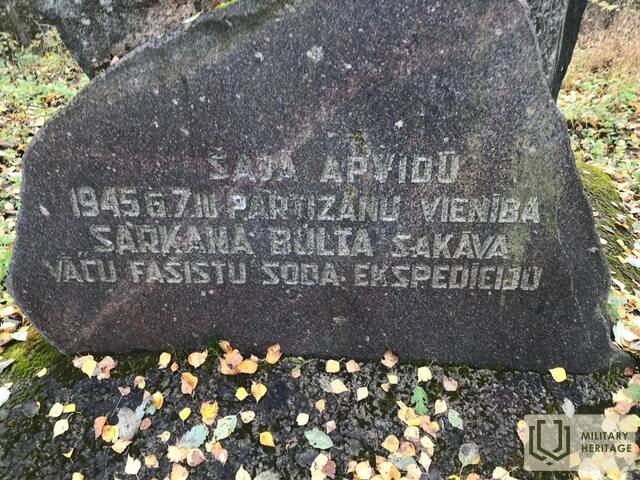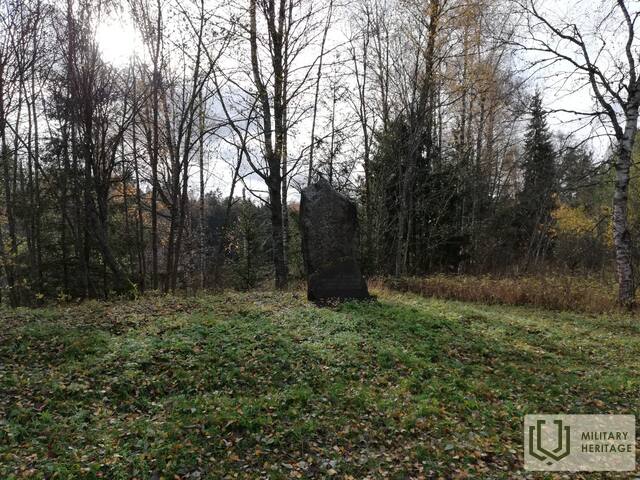Memorial stone of the Soviet partisan unit "Red Arrow"
Battle site

The Soviet partisan unit was formed on 30 September 1944, when 19 soldiers of the German 283rd Police Battalion, under the leadership of Vladimir Semyonov, deserted with their weapons. The battalion was formed in 1943 from volunteers from the Latgale region and took part in the anti-partisan operations of the German occupation authorities in the territory of Latvia and Belarus.
The unit was called "Semyonov Unit" after its commander and only at the end of the war adopted the name of "Red Arrows", which was already spread by Soviet propaganda after WWII. By December 1944, the unit had 300-400 partisans. Most of them were escaped Red Army soldiers, former Legionnaires, including fighters left after the destruction of General Kurel's group. Although many Red Army reconnaissance groups were active in Kurzeme at this time, they avoided close cooperation because the activities of the commander of the partisan unit and its main core in the ranks of the German police were too suspicious. The Red Arrow's activities were relatively poorly organised and more focused on waiting for the end of the war. During its activities it carried out extensive terrorising of the local population.
Vladimir Semyonov, the first commander of the Red Arrow, drowned on the night of 10 December 1944 while knee deep tried to cross the swollen Abava River. His corpse was found only in the spring of 1945 and buried. He was reburied in Kuldīga in 1961.
The monument is located on the site of the "Red Arrow" and other guerrilla camps in the area (about 50-70 people), which on 7 March 1945 was surrounded and attempted to be destroyed by German troops.
Used sources and references:
Samsons V. Kurzeme forests - Riga: Zinātne, 1974
Your comments
Related timeline
Related topics
Related stories
Description by Vilis Samsons of the Red Arrows battle with German police units on 7 March 1945
On 7 March 1945, the "Red Arrows" partisan camp was surrounded and attempted to be destroyed by German troops. Vilis Samsons, in his book published in 1974 by "Zinātne", Riga, describes the course of this battle














my grandmother was murdered after the house was robbed, then my grandmother and the owner of the neighbor's house were murdered.